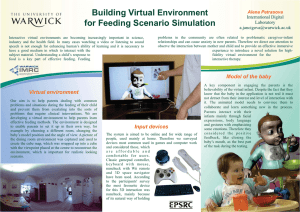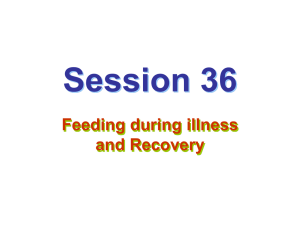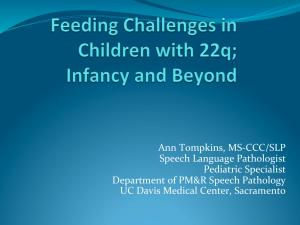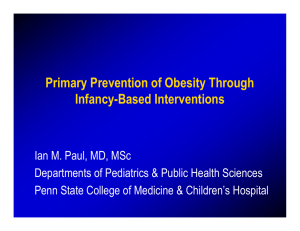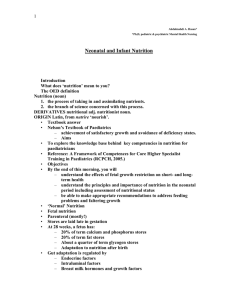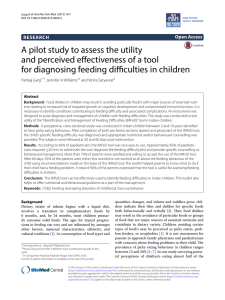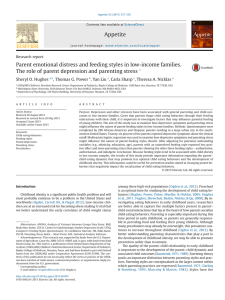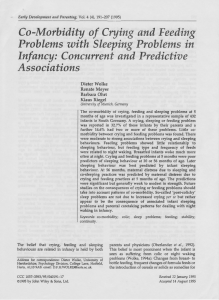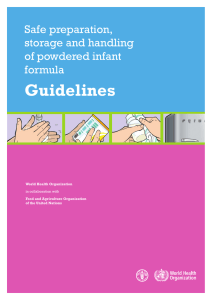Virtual Reality for the Efficient Treatment of Infants with Feeding Difficulties Vision
advertisement
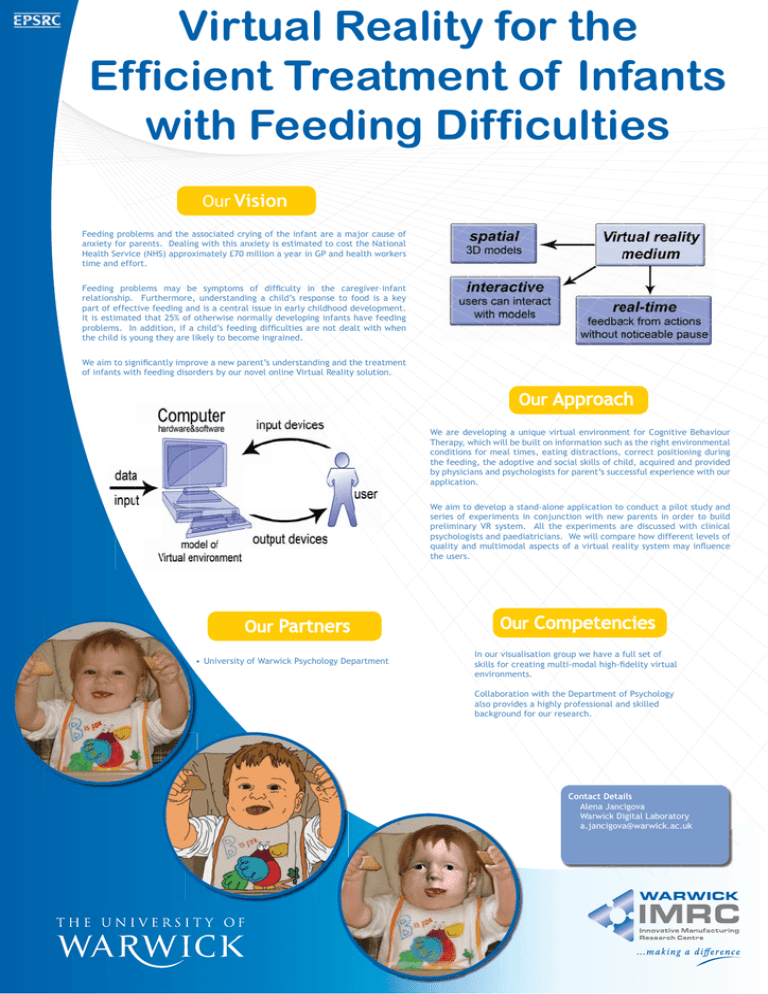
Virtual Reality for the Efficient Treatment of Infants with Feeding Difficulties Our Vision Feeding problems and the associated crying of the infant are a major cause of anxiety for parents. Dealing with this anxiety is estimated to cost the National Health Service (NHS) approximately £70 million a year in GP and health workers time and effort. Feeding problems may be symptoms of difficulty in the caregiver–infant relationship. Furthermore, understanding a child’s response to food is a key part of effective feeding and is a central issue in early childhood development. It is estimated that 25% of otherwise normally developing infants have feeding problems. In addition, if a child’s feeding difficulties are not dealt with when the child is young they are likely to become ingrained. We aim to significantly improve a new parent’s understanding and the treatment of infants with feeding disorders by our novel online Virtual Reality solution. Our Approach We are developing a unique virtual environment for Cognitive Behaviour Therapy, which will be built on information such as the right environmental conditions for meal times, eating distractions, correct positioning during the feeding, the adoptive and social skills of child, acquired and provided by physicians and psychologists for parent’s successful experience with our application. We aim to develop a stand-alone application to conduct a pilot study and series of experiments in conjunction with new parents in order to build preliminary VR system. All the experiments are discussed with clinical psychologists and paediatricians. We will compare how different levels of quality and multimodal aspects of a virtual reality system may influence the users. Our Partners • University of Warwick Psychology Department Our Competencies In our visualisation group we have a full set of skills for creating multi-modal high-fidelity virtual environments. Collaboration with the Department of Psychology also provides a highly professional and skilled background for our research. Contact Details Alena Jancigova Warwick Digital Laboratory a.jancigova@warwick.ac.uk
